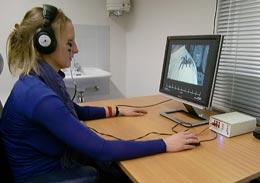 To remove unwanted memories, just take pill?Focus Features / The Kobal Collection / Lee, David
To remove unwanted memories, just take pill?Focus Features / The Kobal Collection / Lee, DavidPosted on 02/15/2009 6:47:37 PM PST by neverdem
 To remove unwanted memories, just take pill?Focus Features / The Kobal Collection / Lee, David
To remove unwanted memories, just take pill?Focus Features / The Kobal Collection / Lee, DavidIn the film Eternal Sunshine of the Spotless Mind, a couple have their memories of each other wiped when their relationship ends badly. But now in a real-life twist to that tale, Dutch scientists show that, in humans, a fearful memory can be erased by a drug that is usually used to control blood pressure.
When memories are first laid down, they are 'consolidated', usually during sleep, to fix them. Such memories generally do not change, but when they are remembered, or 'reactivated', they become 'editable'. They are then stored in their altered form, a process called reconsolidation.
Now a team led by Merel Kindt at the University of Amsterdam have used the ß-blocker propranolol to affect reconsolidation.
It is known that, in animals, reconsolidation can be manipulated with propranolol to erase fearful memories1, and a preliminary study has hinted that the drug might do the same in humans2. But Kindt and her colleagues wanted to know if reconsolidation was really what was being affected.
Current treatments for patients who have strong fearful memories, for example people with post-traumatic stress disorder (PTSD), can only dampen down the reaction to a bad memory. "There are a lot of treatments for anxiety disorders but you see a lot of relapse," says Kindt.
 The team conditioned people to be afraid of spiders.Merel Kindt
The team conditioned people to be afraid of spiders.Merel KindtTo discover whether drug treatment would change this, the team conditioned people to be afraid of pictures of spiders by showing them photos of the arachnids and then giving them a harmless but uncomfortable electric shock. The next day, they gave them either a placebo or a dose of propranolol, and reactivated the frightening memory by showing them the same pictures. Both groups reacted equally to the pictures — as measured by their 'startle reflex', or movement of the blinking muscles around their eyes.
On day 3, the researchers once again showed subjects the spiders. This time, the people given propranolol showed less of a fearful reaction than those who had been given the placebo.
What's more, the response of a second control group who took the drug but did not go through the reactivation on day 2 was similar to that of the group given the placebo, suggesting that it is the reconsolidation of the memory the second time around that is affected by the drug. The results appear in Nature Neuroscience3.
This shows that "propranolol really is 'deconsolidating' memory", says Roger Pitman at Harvard Medical School, who led the original study on the effects of the drug on fear memories in patients with PTSD2. In his study, Pitman and his team had given 19 patients propranolol or a placebo, and a week later asked them to think about their traumatic memories while physiological indicators of fear were measured. Those who had taken the drug showed smaller responses to remembering the traumatic event.
Because studies on patients are more complex, it was not possible for Pitman's team to discover whether reconsolidation was responsible for the decreases in fear that they had found.
"It's the combination of activating and interfering with a specific memory" that makes this treatment effective, says Kindt. Just activating it, or just interfering with memory more broadly, would not have the same effect.
In addition, the drug treatment didn't affect how well the participants remembered the link between the spiders and the shock. They could recall the link clearly, but the fear response had gone. This should go some way to easing concerns that using propranolol to quell fearful memories will wipe out memories indiscriminately, says Pitman.
The result could also yield more effective, longer-term treatments for unwanted emotional memories such as those that affect patients with PTSD.
"The leap from this to clinical research is a big one, but what this says is that there really is something to propranolol," says Pitman.
Kindt and her team have already done a long-term study of the technique to see how robust the effects are, and plan to publish the results soon. They are also conducting brain imaging studies, and may soon try out the therapy on stronger fearful memories.
P.S. ß is beta from the Greek alphabet. When it's pronounced, the e in beta sounds like a hard A, with the a in beta being a soft A.
Thanks. Ping.
Will this pill work until January 2012?
/johnny
I’m sure this will be a useful tool for the re-education camps.
Bad news. Memories both good and bad serve a purpose.
Experiences, good and bad all teach. Forget them and you will forget the lessons learned.
It has also been used to treat "performance anxiety" for a very long time. It is moderately effective.
Right, Inderal is good medicine, but I do not think it has or will live up to the inferences they seem to be making about it in this article.
Well, as much as I like that idea, we do NOT want to forget what happens when a Marxist/fascist/black supremacist with entitlement inadequacies becomes President. Life's most important lessons are also it's harshest.
As another poster said on another thread:
Don’t take the vaccine! Don’t take the vaccine!
I would hate to get popped with this thing!
Let us say ,retoricaly speaking, that after a few years of sowing your wild oats, you finally meet a girl that you are determined to pursue and keep, she is everything you have ever desired. Let us say that after a few months she has become with your child and you are married. Let us say that in a split second she exits this world, run down on the sidewalk by a druggy trying to elude the police. Is that a memory that enhances your life? Is she a person you could ever willingly part with? Just sayin...

Yes, you should remember her. You should remember that life is fragile, that people need to be treasured, that drug abuse isn’t a victimless crime, and that being in love is possible. Your child should be honored in your memory. The whole experience was of great value and should not be forgotten.
Warning-
For reducing fear: this pill is not a substitute for a 45 auto.
YOU DID NOT KNOW MY EX WIFE! :) but if you did you have lousy taste!
For reducing fear: this pill is not a substitute for a 45 auto.
From the workshop of the Great Prophet John Moses Browning, DOING IT RIGHT SINCE 1911!
So right.
There is a research center in the Twin Cities devoted to helping people who survived torture. Helping these people to shed those hellish memories would help them to work towards a better life today. Victims of "ethnic cleansing", a term that doesn't even begin to touch the horrors endured in Africa or Bosnia, could perhaps be given a better start.
Disclaimer: Opinions posted on Free Republic are those of the individual posters and do not necessarily represent the opinion of Free Republic or its management. All materials posted herein are protected by copyright law and the exemption for fair use of copyrighted works.